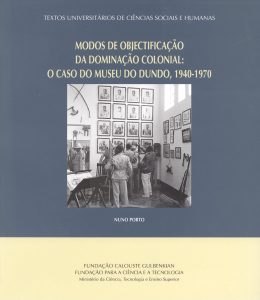
This text is an ethnographic analysis of the museum owned by the Diamang – The Diamonds Company of Angola, during the last decades of the Third Portuguese Empire. The Dundo Museum – which was developed from 1936 onwards by the Company – is the generative object of the inquiry to the self-reclaimed specificity of the Company’s colonial project, phrased as ‘scientific colonialism’. The notion of ‘knowing in order to colonise’ became a widely practised Company attitude in its concession area in the North East of Angola. It permeated all its diverse fields of operation related to its main activity – the exploitation of diamonds – and was symbolised in the Dundo Museum. The museum is thus seen as an artefact produced by a colonial culture in which science, technology and a project of society are programmatically embedded in the making of Portugal in Africa. The analysis focuses on the material culture and on the practices of scientific work carried out in the museum, providing the context of the steady development of the museum culture of the Dundo Museum within the historical dynamics of the colonial community. An ecological approach to scientific and museological practices is developed. These practices are disclosed in different complexity scales of the colonial situation. By these means the core argument of the text suggests the understanding of such practices as an integral part of the colonial process and pleads for the need of conceptualising the museum as a colonial agent.
For more information: https://estudogeral.uc.pt/handle/10316/1587